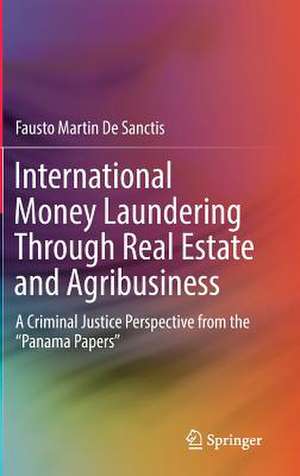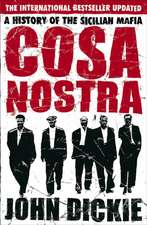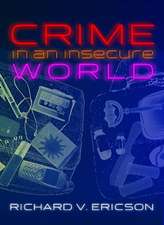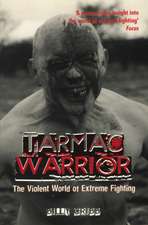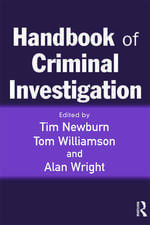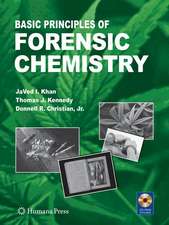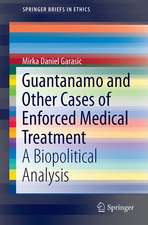International Money Laundering Through Real Estate and Agribusiness: A Criminal Justice Perspective from the “Panama Papers”
Autor Fausto Martin De Sanctisen Limba Engleză Hardback – 20 feb 2017
As national borders have opened and trade barriers have fallen, transnational crime has grown at unprecedented levels. The current situation, better revealed by the so-called “Panama Papers,” is a result of a lack of local cooperation in the investigations, prosecution, and/or extradition of criminals. Governments profit from ill-gotten wealth hosting international criminal enterprises in their own territories, thus providing a fertile ground for illicit practices, closing their eyes to the nexus among false or inappropriate identification, fraudulent records, corruption, and money laundering. If these types of transnational money-laundering are allowed to remain as they are currently treated, the shift in the financial paradigm, from centralized and regulated to decentralized and “unregulated,” would allow for the continuation of some of the most dangerous criminal activity. In this timely book, the author presents arguments that by “following the money,” capital movements involved in transnational money laundering through real estate and agribusiness can be examined, revealed, and understood.
| Toate formatele și edițiile | Preț | Express |
|---|---|---|
| Paperback (1) | 690.11 lei 6-8 săpt. | |
| Springer International Publishing – 13 iul 2018 | 690.11 lei 6-8 săpt. | |
| Hardback (1) | 696.35 lei 6-8 săpt. | |
| Springer International Publishing – 20 feb 2017 | 696.35 lei 6-8 săpt. |
Preț: 696.35 lei
Preț vechi: 819.23 lei
-15% Nou
Puncte Express: 1045
Preț estimativ în valută:
133.25€ • 139.47$ • 110.90£
133.25€ • 139.47$ • 110.90£
Carte tipărită la comandă
Livrare economică 31 martie-14 aprilie
Preluare comenzi: 021 569.72.76
Specificații
ISBN-13: 9783319520681
ISBN-10: 3319520687
Pagini: 143
Ilustrații: XIV, 143 p. 2 illus. in color.
Dimensiuni: 155 x 235 x 11 mm
Greutate: 0.4 kg
Ediția:1st ed. 2017
Editura: Springer International Publishing
Colecția Springer
Locul publicării:Cham, Switzerland
ISBN-10: 3319520687
Pagini: 143
Ilustrații: XIV, 143 p. 2 illus. in color.
Dimensiuni: 155 x 235 x 11 mm
Greutate: 0.4 kg
Ediția:1st ed. 2017
Editura: Springer International Publishing
Colecția Springer
Locul publicării:Cham, Switzerland
Cuprins
Introduction.- Chapter 1: Money Laundering Through Real Estate.- Chapter 2: Money Laundering Through Agribusiness.- Chapter 3: Money Laundering Typologies Evidenced in the “Panama Papers”.- Chapter 4: Efforts to Combat Money Laundering.- Chapter 5: Conclusions.- Chapter 6: Proposals to Improve the War Against Financial Crimes Through Real Estate and Agribusiness.
Notă biografică
Fausto Martin De Sanctis holds a Doctorate in Criminal Law from the University of São Paulo’s School of Law (USP) and an advanced degree in Civil Procedure from the Federal University of Brasilia (UnB) in Brazil. He was a Public Defender in São Paulo from 1989-1990, and a State Court Judge, also in São Paulo, from 1990-1991, until he was appointed to the Federal Courts.
He is currently a Federal Appellate Judge in Brazil’s Federal Court for the Third Region, with jurisdiction over the states of São Paulo and Mato Grosso do Sul. He is also the Deputy Director of the Federal Judicial School and a member of the Portuguese Language Law Jurists Community (CJLP). Since 2013, he has been an Advisory Council Member for the Brazil-U.S. Legal and Judicial Studies Program at American University Washington College of Law. Judge De Sanctis was selected to handle a specialized federal court created in Brazil to exclusively hear complex cases involving financial crimes and money laundering offenses. He is a world known expert on this topic and has been invited to participate in programs and conferences both in Brazil as well as internationally.
From April 2 to September 28, 2012, Judge De Sanctis was a fellow at Federal Judicial Center in Washington, DC.
He is currently a Federal Appellate Judge in Brazil’s Federal Court for the Third Region, with jurisdiction over the states of São Paulo and Mato Grosso do Sul. He is also the Deputy Director of the Federal Judicial School and a member of the Portuguese Language Law Jurists Community (CJLP). Since 2013, he has been an Advisory Council Member for the Brazil-U.S. Legal and Judicial Studies Program at American University Washington College of Law. Judge De Sanctis was selected to handle a specialized federal court created in Brazil to exclusively hear complex cases involving financial crimes and money laundering offenses. He is a world known expert on this topic and has been invited to participate in programs and conferences both in Brazil as well as internationally.
From April 2 to September 28, 2012, Judge De Sanctis was a fellow at Federal Judicial Center in Washington, DC.
Textul de pe ultima copertă
This book examines two types of transnational money laundering: the use of offshores and wire transfers to “invest” in real estate; and agribusiness, a nebulous activity that is difficult to regulate. The author also examines current international mechanisms to combat money-laundering; whether these efforts have been successful or unsuccessful; and whether multilateral instruments are an effective tool in the war against international organized crime.
As national borders have opened and trade barriers have fallen, transnational crime has grown at unprecedented levels. The current situation, better revealed by the so-called “Panama Papers,” is a result of a lack of local cooperation in the investigations, prosecution, and/or extradition of criminals. Governments profit from ill-gotten wealth hosting international criminal enterprises in their own territories, thus providing a fertile ground for illicit practices, closing their eyes to the nexus among false or inappropriate identification, fraudulent records, corruption, and money laundering. If these types of transnational money-laundering are allowed to remain as they are currently treated, the shift in the financial paradigm, from centralized and regulated to decentralized and “unregulated,” would allow for the continuation of some of the most dangerous criminal activity. In this timely book, the author presents arguments that by “following the money,” capital movements involved in transnational money laundering through real estate and agribusiness can be examined, revealed, and understood.
As national borders have opened and trade barriers have fallen, transnational crime has grown at unprecedented levels. The current situation, better revealed by the so-called “Panama Papers,” is a result of a lack of local cooperation in the investigations, prosecution, and/or extradition of criminals. Governments profit from ill-gotten wealth hosting international criminal enterprises in their own territories, thus providing a fertile ground for illicit practices, closing their eyes to the nexus among false or inappropriate identification, fraudulent records, corruption, and money laundering. If these types of transnational money-laundering are allowed to remain as they are currently treated, the shift in the financial paradigm, from centralized and regulated to decentralized and “unregulated,” would allow for the continuation of some of the most dangerous criminal activity. In this timely book, the author presents arguments that by “following the money,” capital movements involved in transnational money laundering through real estate and agribusiness can be examined, revealed, and understood.
Caracteristici
Highlights the issue if money laundering through properties (Real Estate, Offshores, NPO's and Agribusiness) Examines international patterns of curbing financial crimes Discusses money laundering cases revealed by the "Panama Papers" Will appeal to jurists, legal academics, legal professionals and real state and agribusiness sectors Includes supplementary material: sn.pub/extras
